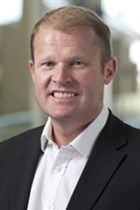Developing markets develop better global business leaders

I travel on two passports, have been to over 75 countries, visiting thousands of cities. I have been to some amazing places, countries on the edge of war, or just as they ended them, countries fighting terrorism, some that recently came out of communism and those liberated from the oppressive regimes.
I have had on more than one occasion, a Kalashnikov rifle waved in my face and been vaccinated at least four times, for every conceivable possible disease that exists. In my time I have travelled first class, business class, economy class, even standing in a plane for the entire journey and once been told to sit on the toilet seat for takeoff and landing, both times on commercial flights. I have been arrested several times, spent a night in a jail in Russia and have had attempts to bribe or corrupt me, even occasionally received threats to harm me from organised crime on a couple of continents.
I am not a spy, war correspondent, diplomat, soldier, or drug dealer. Reading this you might be surprised to learn I am a corporate business person, I have spent over 20 years working across emerging markets and before you wonder, the businesses I have been involved in are all legitimate ones.
What does experience across the globe really mean?
That's the fun side to working in developing markets, but what does experience in some of the wilder places across the globe really mean?
The types of challenges faced by managers every single day in these developing markets takes a manager in a developed market months or years to gain. The skills managers in developing markets quickly acquire make them better leaders than their counterparts in more stable, mature markets.
Whether the manager is local or expat, the richness, complexity, diversity of different situations and the ability to get things done in these markets are exactly what's required to develop strong leaders.
Let me be clear about the difference between technical ability that you need in more sophisticated markets, and leadership ability. I agree that where technical expertise and experience is required for developed countries you won't necessarily get that experience from a developing market; however leadership is not inspired by technical prowess but rather from an ability to lead. It doesn't mean developed markets don't develop great leaders, I am just saying developing markets do it better.
Qualities of managers in developing markets
Managers in developing markets think on their feet, analyse information on the go, make decisions efficiently (they have to), handle difficult or stressful situations daily, develop a "can do" attitude, are solutions and results orientated, flexible and pragmatic, take a realistic approach whilst maintaining high ambitions and standards of performance, inspire others to follow to an achievement of a common goal even with all the complexities around day to day business distracting the organisation. I was reminded of this sitting in the police station: they develop the power of a smile to diffuse a tense situation.
My experiences are not unique. Business leaders that have lived and worked in developing countries all have similar war stories and business experiences, different times, different situations but similarities in their ability to analyse, overcome and lead organisations in complex and challenging environments. Furthermore they get it. They have a deep, firsthand experience and understanding of consumers in these markets - consumers by the way, that are going to fuel global growth of the companies they work for over the next decade or more.
The importance of global business leaders with a developing market pedigree is even more critical when you consider the increasing size and importance of these markets to the bottom line of global companies.
10-15 years ago developing markets offered companies the biggest growth potential. Today they still do, but they are now fast approaching up to half of many company's global sales. No wonder then that we are seeing a huge shift in the senior leadership of most North American and European companies. Look back 10 years ago and see how many senior leaders in these companies came from developing markets and see how many there are today.
Experienced, global leaders from developing markets
Here are a few examples of global leaders from developing markets or with significant experience in these markets:
- Muhtar Kent CEO Coca Cola, from Turkey worked extensively in his early years in Turkey, Central Asia and Eastern Europe in the late 80s and early 90s.
- Werner Geissler - Vice Chairman Global Operations P&G, originating from Germany, Geissler has spent a significant portion of his career working in developing markets, including Turkey, Middle East, Africa and North Asia.
- Harish Manwani Chief Operating Officer Unilever, from India, prior to global assignments worked across India, Central Asia and Middle East.
- Indra Nooyi Chairperson and CEO Pepsi Co, originating from India.
- Bob Dudley CEO British Petroleum, an American citizen, Dudley spent his formative years developing Amaco then BP in Russia, prior to that he gained experience in China.
The leaders of global companies over the next decade will increasingly be drawn from places like Egypt, Nigeria, Kenya, China, Russia, Brazil and Turkey, so what should companies be doing about that now?
Simple advice
Here's some simple advice for global companies:
- For the up and coming manager sitting in his comfortable office in Europe, the next time your HR department talks to you about a great opportunity in Nigeria realise that it could be a catalyst for your career on a global level, or even better go and see what opportunities exist in those markets.
- For the global VP of marketing in his New York office, which are your growth markets over the next decade for your company? Egypt, Nigeria, Turkey, Russia, China? How many members of your team come from those markets? If you have gaps you need to start recruiting your brand managers from these markets so you can ensure you develop brands relevant to these consumers.
- For group HR directors: treat assignments in these countries not as "let's see who we can find to go to these tough places", but "let's get our best global talent there and fast." Consider how you can accelerate development on a global level of the best local talent you have in these developing markets.
To finish off and just so you don't think I am writing this from a prison cell somewhere in Africa. My patient explanation and warm smile convinced my captors of the genuine reasons for visiting their country for business and after having taken a cup of sweet tea with them, discussed the latest goings on in the UK Premiership league, especially Arsenal, they set me free.
























